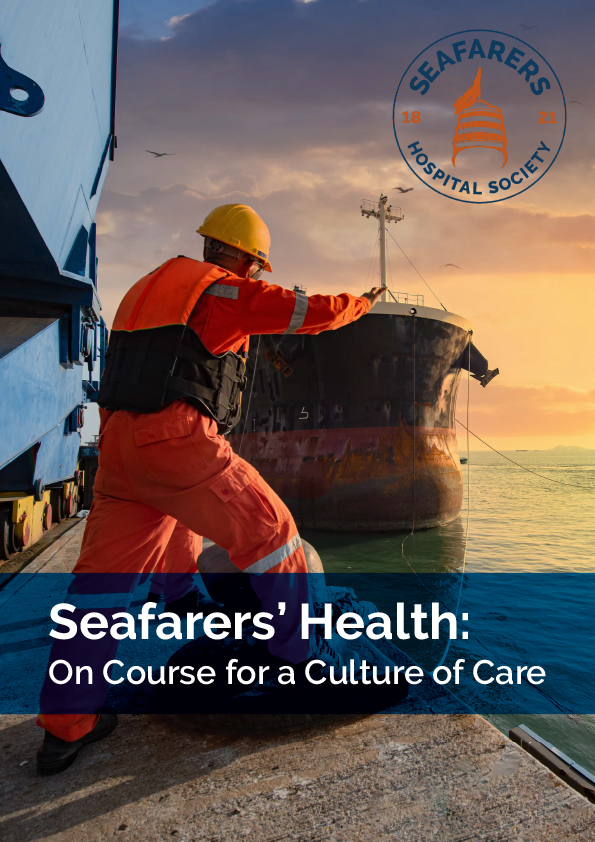SHS discussion paper outlines data tracking framework for seafarer wellbeing
The Seafarers Hospital Society has launched a discussion paper titled ‘Seafarers’ Health: On Course for a Culture of Care’ which establishes possible key performance indicators (KPIs) for ship owners and operators to measure the effectiveness of strategies aimed at improving seafarer health and wellbeing.
The discussion paper offers industry stakeholders practical steps to introduce cost effective and relevant interventions as part of a culture of care, while also utilising and developing further KPIs to track their effectiveness.

Sandra Welch, the CEO of Seafarers Hospital Society, said, “While a number of forward-thinking employers in the maritime sector have implemented solutions to enhance seafarer health and wellbeing, others often find themselves restricted by having to justify costs or changes in operations to company stakeholders. The creation of focused KPIs allows for pragmatic interventions to be made and to track their progress over time, enabling a stronger business case for their implementation. The findings can also be used to inform conversations on industry progress in seafarer health.”
Divided into three categories, which include international seafarer requirements, health promotion activities, and psychological wellbeing, the discussion paper factors in key considerations such as the promotion of decent work (per the International Labour Organization), the maritime sector’s increasing need for transparency, and a growing global focus on environmental, social, and governance (ESG) factors.
Captain Kuba Szymanski, SHS Chair and Secretary General of InterManager, said “Having spent years at sea, I know first-hand the physical toll seafaring can take and what a difference it makes when there are proper systems of care in place. As we move beyond the added stresses and strains created by the pandemic, it is more important than ever that maritime employers take the health and wellbeing of their workforce seriously, particularly if we want to retain talent and attract new recruits. KPIs like these are a vital tool that we as an industry can use to make real, pragmatic improvements and to hold ourselves accountable as responsible employers of our essential global workforce.”
“Instituting a culture of care and tracking this information not only further enables shipping’s own goals of increased transparency and a Just Transition, but also shows us where we can proactively address shortfalls in the maritime sector’s ability to compete with shore-based industries. This is particularly vital as we seek digital and automation expertise. This is not something shipping can afford to ignore. As the maritime industry becomes more public-facing, consumer appetite for information on how industries treat the wellbeing of their workers is growing, prompting shipping’s customers to carefully assess the values of who they do business with. Equally, companies that are well-known for their transparency and commitment to employee wellbeing will attract and retain talent,” explained Welch.
Following the launch of the paper, SHS seeks feedback from industry stakeholders such as ship owners and operators, charterers, seafarers and their representatives, P&I clubs, welfare providers, unions and more through focused discussions, roundtables, and working groups. Interested parties can find the discussion paper here and register their interest on the SHS website here.